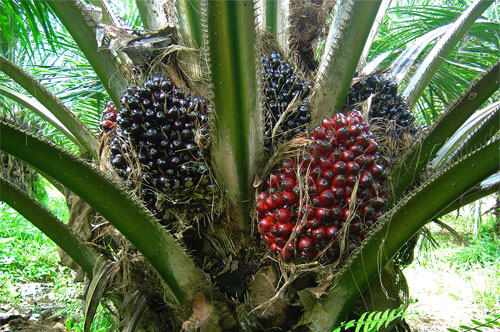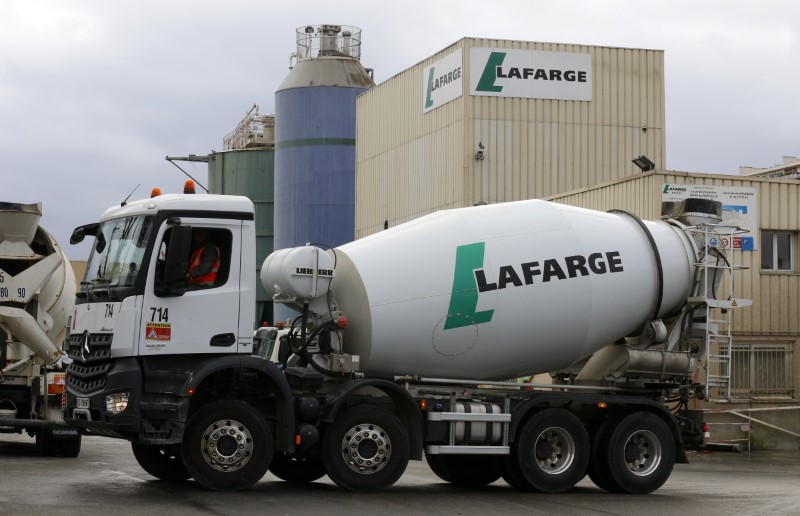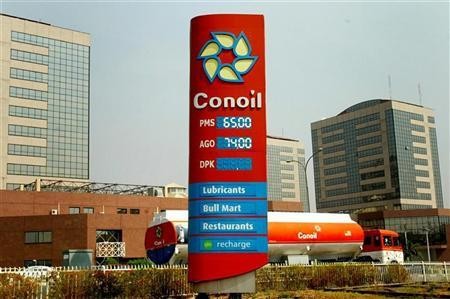Oil palm companies seem to be in a golden period, operating from the agricultural sector that is the growth driver of the economy and particularly favoured by the Central Bank’s restrictive foreign exchange policy. Agricultural sector has maintained positive growth all through the economic decline and is the positive force in the current recovery. The big advantage of oil palm companies is local dependence for inputs and virtually free from the risk of foreign exchange crisis.
The operators here are agro-industrial companies with oil palm plantations, palm oil mills, palm kernel crushing plants and vegetable oil refining plants. They engage in extraction, refining and fractionation of crude palm oil into finished products and supply speciality fats and oils.
The companies have a large market to feed and product demand is firm but limited operating capacity remains a challenge. Local output of palm products, for instance, meets about one-third of total domestic demand. Importation has been restricted under the Central Bank’s foreign exchange conservation measures. This has boosted product prices and encouraged domestic capacity expansion.
The companies here are growing revenue and profit and they have some of the highest profit margins among companies listed in the Nigerian Stock Exchange. Earnings prospects usually fluctuate with changes in product yield – which is a weather dependent factor. This tends to create an unstable pattern of growth in revenue and profit.
Advertisement
Fiscal 2017 is one of an upturn for the companies here with revenue and profit expected to register the highest growth rates in recent years. Besides weather changes, the operators show a great deal of stability in earnings performance that is hardly matched by any other group of listed companies.
Okomu Oil
Okomu Oil Palm has expanded its oil palm plantation as well as processing facilities. That seems to have positioned it to reap the gains of the Central Bank’s restriction of foreign exchange to palm oil importers. The reduced competition with imports has permitted gains on both sides of output and pricing for the company. The oil palm and rubber producing company shows good prospects for sustaining earnings recovery for the third year running and hitting a five-year peak in profit in 2017.
The company expects a top record growth of 25% in palm products output volume in 2017 to close in the region of 46,000 tonnes. Each gain in volume creates for the company a higher percentage growth in sales revenue and each naira gain in revenue again yields a higher percentage growth in profit than sales. Its outstanding profit margin shows that nearly 39% of every naira of sales reaches the bottom line.
Advertisement
Sales revenue grew by 52% at the end of September to N16.59 billion, already above the N14.4 billion the company posted at the end of 2016. The company is expected to maintain the strong growth in sales revenue to full year though an off-season slowdown is likely.
At N6.39 billion at the end of September, after tax profit was standing 30% above the full year profit the company reported in all of the 2016 financial year. The company is rebuilding profit for the third year running in 2017 after a sustained decline in profit hit the lowest figure in years in 2014. It earned N6.70 per share at the end of the third quarter, which has pushed up its share price 87% on January opening by last week’s close.
Presco
Presco is experiencing a galloping growth in revenue though it lost profit at the end of the third quarter. In 2016, the company registered a profit high jump that established profit well above sales revenue. It multiplied after tax profit close to nine times to about N22 billion at the end of the year. A gain on biological assets revaluation provided the bulk of the profit in 2016 but a revaluation loss was recorded at the end of the third quarter of 2017.
At N16.92 billion at the end of September, sales revenue stood close to 42% above the corresponding figure in 2016. This is yet another strong growth after a break-out performance the company saw in 2016. Turnover had been generally stagnant for the company for some years until a 50% leap in 2016 broke the sluggish trend of the preceding years.
Advertisement
Despite a likely off season slow down in the final quarter, the company looks likely to report a substantial growth in sales revenue at full year. Profit growth is likely to slow down with sales revenue in the final quarter, indicating a wider margin of profit drop at full year than recorded at the end of September. However biological assets revaluation gain, which could expand rapidly at full year as it in 2016, could change the profit picture radically. The company earned N5.36 per share at the end of the third quarter with a year to date share price advance of 70% at last week’s market close.
Add a comment







